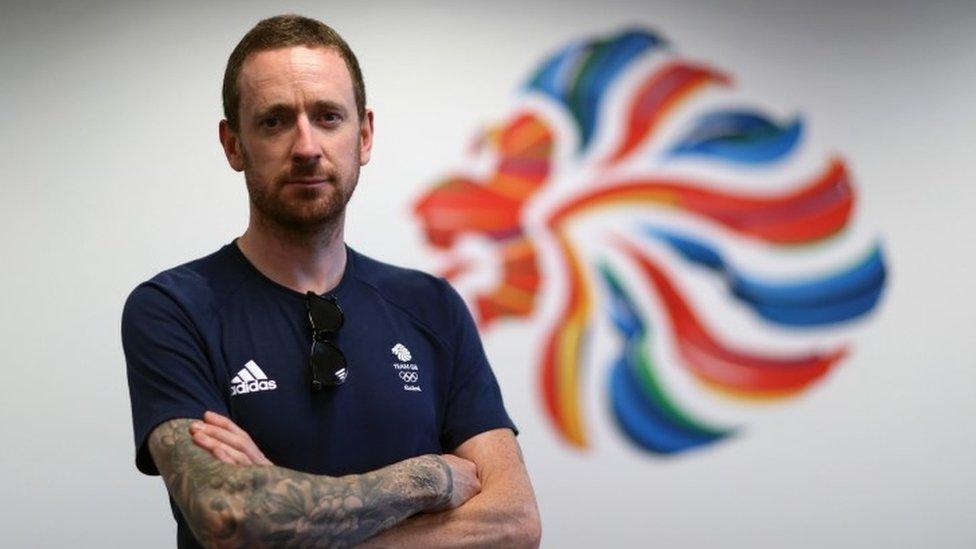Sir Bradley Wiggins edged out at Six Day London in 'final' British race
- Published
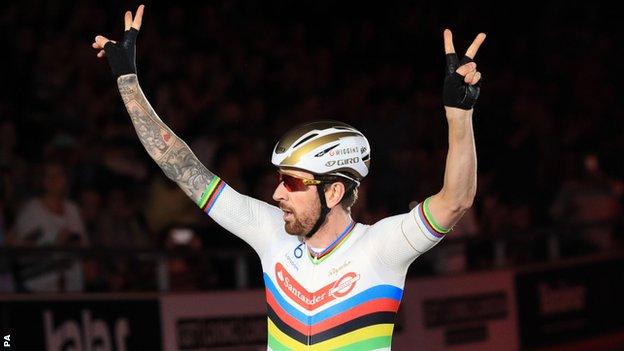
Wiggins set a new hour record at the Lee Valley velodrome in June 2015
Sir Bradley Wiggins' expected final race on British soil ended in a second-place finish with Mark Cavendish at the Six Day London.
The British pair were beaten by Moreno de Pauw and Kenny de Ketele of Belgium in the final race, the madison.
Wiggins, 36, plans to retire after the Six Day event in Ghent in November but hinted at a possible change of heart.
"Money talks," he joked. "Who wouldn't want to come back with a week like this? I don't know. I love racing."
After competing at the Lee Valley velodrome, which hosted the London 2012 track events and was built on the site of the Eastway facility that he used as a boy, the five-time Olympic champion said it was an appropriate place to end his career in Britain.
"It has such fantastic memories for me. I will always come back - I'll probably be back next year, but in the stands," he told Eurosport.
The event started last Tuesday and Wiggins and Cavendish led going into Sunday's final day but were beaten in the last race of the exhibition event.
De Pauw and De Ketele gained a lap late in the madison - after a slipped hand-sling changeover cost the reigning British world champions in the closing stages in London - and took the final sprint to win by 11 points.
"It just shows what a class act they are - hats off to them," said Wiggins.
Cavendish hopes that he can help give Wiggins' a winning send-off in Ghent - the city of his birth.
"We're in top condition and know we can go to Ghent ready to win," he said.
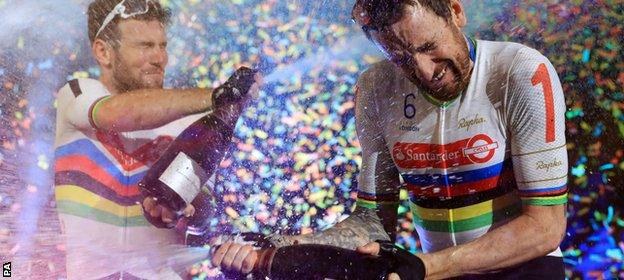
Mark Cavendish and Bradley Wiggins consoled themselves with a Champagne spray on the podium
Wiggins was racing for the first time after a period he described as "topsy turvy".
It emerged in September that Wiggins took a banned steroid before his 2012 Tour de France win.
Britain's most decorated Olympian had a therapeutic use exemption to allow him to use the drug.
While no rules were broken, some of Wiggins former team-mates and a doctor who worked with him at Team Sky say questions remain over his use of triamcinolone to treat allergies and respiratory issues.
Wiggins told the BBC's Andrew Marr Show that his treatment put him "back on a level playing field" and that he didn't gain any "unfair advantage".
Bradley Wiggins: 'This was about putting myself back on a level playing field'
- Published25 October 2016
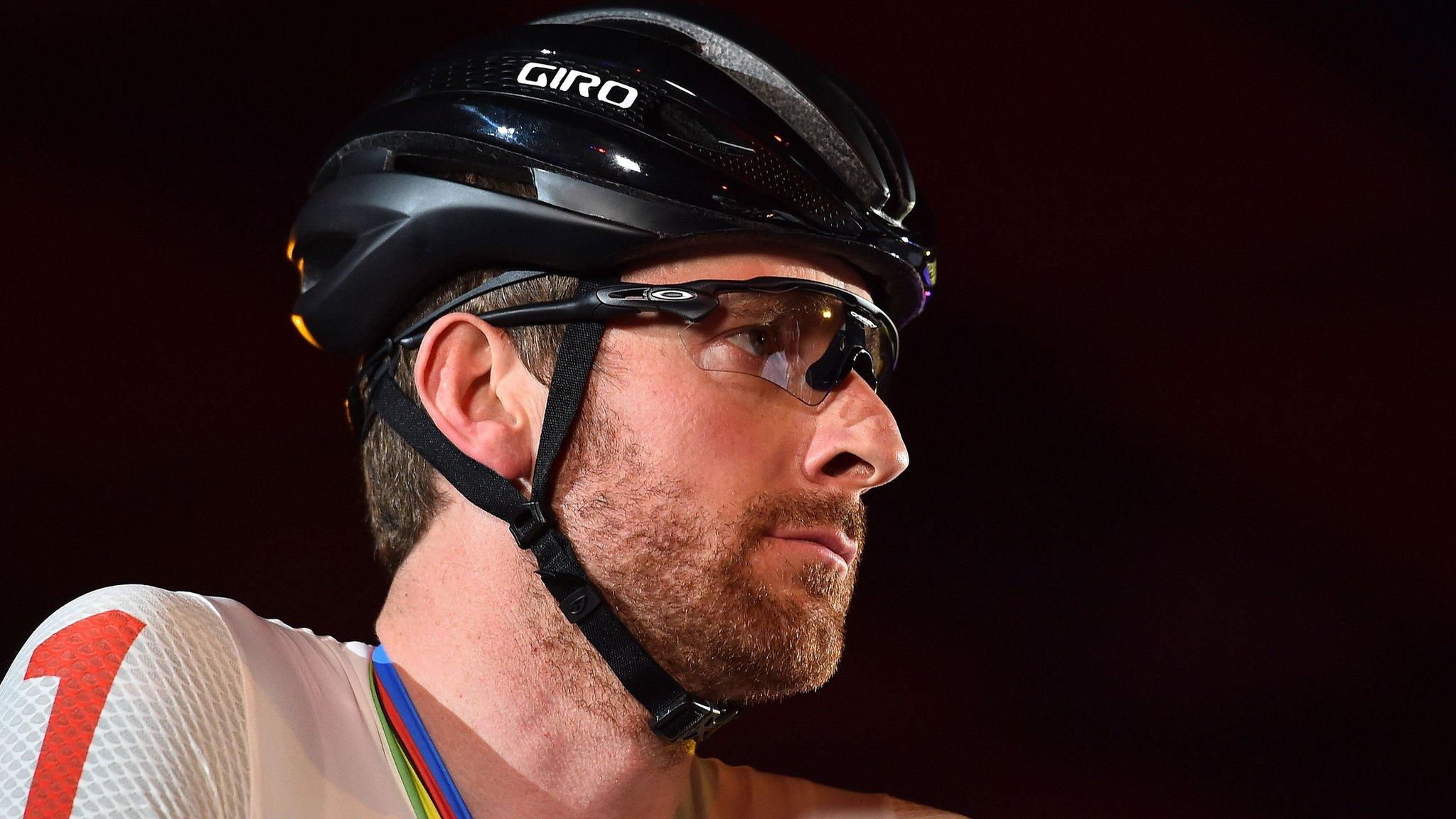
- Published18 October 2016
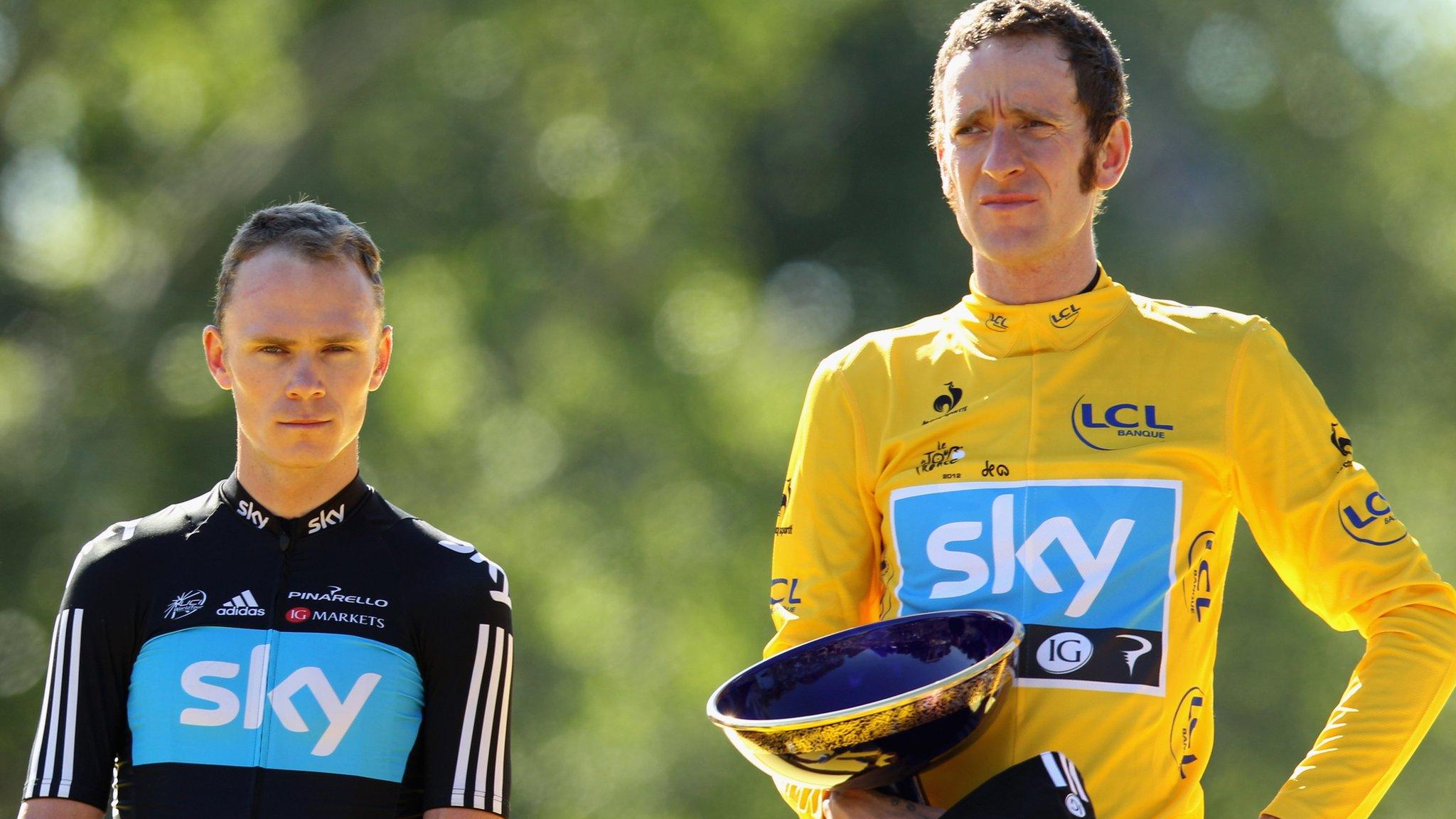
- Attribution
- Published23 September 2016
